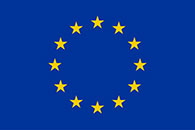


KTH Royal Institute of Technology, Stockholm, Sweden
Centre for History and Economics,
Magdalene College,
Cambridge, UK
© 2025 Centre for History and Economics
SPHERE–Study of the Planetary Human-Environment Relationship—is a European Research Council-funded project based at KTH Royal Institute of Technology in Stockholm, Sweden. At its core, SPHERE is a historical study of a comprehensive and complex governance issue in the contemporary world: humanity’s relation to planetary conditions and constraints. The key argument of the project is that Global Environmental Governance (GEG), which has arisen in response to this issue, is inseparable from the rise of Earth Systems Science and a knowledge- informed understanding of global change. This process has now been ongoing for almost half a century since the UN Environment Conference in Stockholm in 1972. Yet no history of GEG currently exists. SPHERE seeks to provide such a history as the start of a wider effort that will surely occupy historians and environmental scholars for many years to come.
Overarching objective
A guiding hypothesis for this project is that this history must be integrative and look at the deeper connections between Earth Systems Science, rising essentially since the 1980s, and GEG. It is through integration of knowledge from a very wide set of scientific practices and political experiences into a nexus of policy and global systems modelling that we find a new Weltanschauung, dealing with problems of governance and indeed the making of history on massive scales. These processes require long-term, concerted historical investigation to be fully understood and appreciated. Hence, the overarching objective of SPHERE is to provide a fundamentally new perspective on GEG that challenges both previous narratives of the very recent past as well as the narratives of governance that have not paid full attention to it as an emerging empirical phenomenon that is already setting the conditions for the way societies work.
Emerging questions
- a) Is it possible to conceive of contemporary history without also including knowledge about the changes in Earth systems, in particular as it is human societies that are the ultimate causes behind these changes? Many would say no, but in practice that is what most modern and contemporary history still does.
- b) What is the role of natural knowledge in a reformed historiographical project? It is tempting to think of scientific concepts as a way of providing an evidence base for politics, but we should not forget to ask whether these concepts have a politics of their own.
Summary work plan
SPHERE will follow the entire period from 1945 until 2022, fifty years after the Stockholm Conference. This period of almost eighty years will be chronologically and thematically structured into four interrelated “trajectories”. The themes are designed to cultivate curiosity on co-production of knowledge across the spheres of science, institutions, businesses, and what I prefer to call communities of practice that are essential for all of these.
Trajectory I: Formation - attempts to recognize and articulate a proto-history of GEG. The core premise is that once the concept of ‘the environment’ in its new meaning was established in the immediate postwar years, a slow process started which over time led to the formation of policy ideas, concepts and functional institutions.
Trajectory II: The complicated turning of environmental research into governance - A key objective here is to investigate the relationship between environmental science and environmental governance. How was it that high politics and diplomacy came in closer relations with environmental sciences? This Trajectory explores efforts before, around, and since 1972 for globalizing environmental research as part of GEG.
Trajectory III: Alternative agencies – governance through business and civic society explores private sector responses, including self-regulation through Corporate Social Responsibility, to growing concerns over environmental degradation and pollution. The project will identify key moments and strategies over several decades, and thus assess the impact of business interests on environmental legislation at the international level as well as in national contexts.
Trajectory IV: Integrating Earth into History – scaling, mediating, remembering will turn to historiography itself and examine how concepts and ideas from the ascendant Earth Systems Sciences have influenced both GEG and the way we think historically about Earth and humanity, even suggesting the concept “Earth Systems Governance” (Biermann et al 2012). These and other Earth Systems Science ideas question established views of the Earth and the place of human societies on it.
One could describe this as attempts to integrate Earth into History. With SPHERE, I will analyze this relationship as a set of scientific, cultural and political processes which occur in parallel. SPHERE will be integrative, as well as transcultural and translational and will engage with actors across the fields of science, business, policy, NGO and their communities of practice. It will also be expressly global, and include what I call global fieldwork in institutions and archives to ascertain first-hand experience of regional approaches to the globality of GEG. Bringing multiple strands of GEG—the diplomatic/institutional, science based, technological, and transitions/ transformations oriented—into a comprehensive narrative, I am confident that SPHERE will facilitate a more informed conversation on the future institutional and scientific GEG architecture.